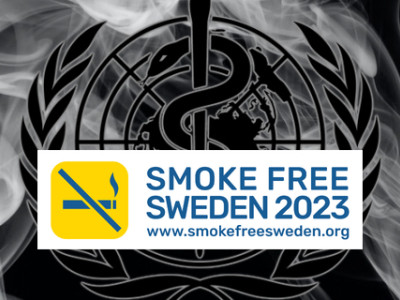“Vaping is hot,” writes Mark Fischetti. “A clever analysis of Twitter posts reveals one possible reason: automated accounts, or bots, may be convincing people that electronic cigarettes are beneficial.”
The evidence for this? Jon-Patrick Allem, an assistant professor of research at the University of Southern California, has rehashed his 2017 study, where he looked at ‘tweets’. A lot of tweets.
Previous pieces of work by Allem include:
- Looking at Twitter for mentions of JUUL
- Guessing the age of people who like JUUL’s Twitter activity
- Reading Twitter to see if people talk about hookahs
- Typing ‘Tobacco’ into the Twitter search bar
- And, daringly branching out, looking at Instagram
For light relief, and as if to prove he can do more than use a web browser, Allem recently released a study where he claimed cartoon characters are used to get non-smoking teens vaping, likening the practise to RJ Reynolds’ old Joe Camel cartoon character. “The data in this most recent study suggest a need for policies to extend restrictions on cartoon-based marketing of cigarettes to include marketing for e-cigarettes,” said Allem.
On Twitter bots, he said: “Social bots may not have the star power of Jenny McCarthy, but what they lack in fame, they make up for in quantity and determination. They are designed to promote a specific, slanted narrative — 24 hours a day, seven days a week.”
He assumes the worst about vaping because it makes for a good funding application. “People need to be aware of these fake social media accounts, and public health campaigns should be implemented to counteract the most dangerous unhealthy behaviours these bots are encouraging.”
Some would say that there isn’t enough promotion of the health benefits of vaping instead of smoking.
Allem claims that it is possible to identify bots from real people by looking at the hashtags they use. Bots, he states, are more likely to post hashtags like #quitsmoking and #health. Real people, on the other hand, focus more on behaviour apparently – using terms like #vape, #vapelife and #vapenation.
He says the danger lies in the fact that these alleged bots are sharing “health advice that hasn’t been scientifically proven”. The consensus is that the relative safety of vaping compared to smoking has been proven beyond any doubt – that Scientific American has chosen to promote this guff is totally reprehensible.
Resources:
- “Social Media Bots Deceive E-cigarette Users” (paywall) – [link]
Dave Cross
Journalist at POTVDave is a freelance writer; with articles on music, motorbikes, football, pop-science, vaping and tobacco harm reduction in Sounds, Melody Maker, UBG, AWoL, Bike, When Saturday Comes, Vape News Magazine, and syndicated across the Johnston Press group. He was published in an anthology of “Greatest Football Writing”, but still believes this was a mistake. Dave contributes sketches to comedy shows and used to co-host a radio sketch show. He’s worked with numerous vape companies to develop content for their websites.
Join the discussion
Harm Reduction For The Rich
The United Kingdom risks becoming a harm reduction country only for the wealthy, according to Michael Landl of the World Vapers’ Alliance
CAPHRA Highlights Tobacco Control Flaws
The Coalition of Asia Pacific Tobacco Harm Reduction Advocates highlights the flaws in tobacco control which has led to the rise of black market in Australia
A Missed Opportunity at COP10
The Smoke Free Sweden movement says that COP10 was a missed opportunity to save millions of lives
COP10: Promote Tobacco Harm Reduction
Experts with Smoke Free Sweden are emphasising the urgent need for a Tobacco Harm Reduction approach at COP10












